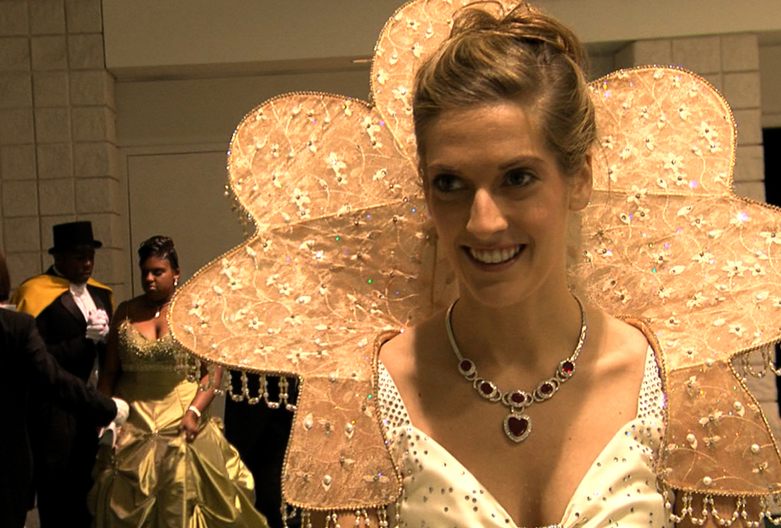Now that it’s winter, it shouldn’t be surprising that a large part of the American populace seems locked into some sort of hibernation mode–a state of mind that suggests that virtually all of the country’s problems can be blamed on George W. Bush and virtually none of them can be blamed on the people who voted for George W. Bush. But a more immediate problem is one that involves adjusting to the fact that the very long and recently concluded presidential campaign is no longer in operation. Milk addresses a mindset I would associate with campaign agitprop mode, a mindset that forsakes nuanced and complex analysis for the sake of immediate uplift; The Order of Myths addresses us in a more analytical mode. Of course, given the outlawing of same-sex marriage in California in the last election, an election-mode form of agitprop may be more functional at the moment, at least where homophobia is concerned, but this doesn’t necessarily entail more thoughtful filmmaking.
As nearly as I can remember, Mobile is the only city in Alabama of any significant size that I never visited during the first 16 years of my life, when I was growing up in that state—nor have I ever made it to Mobile since. One of many reasons why I feel a lot of gratitude towards Margaret Brown—whose recent documentary The Order of Myths chronicles the 2007 Mobile Mardi Gras as planned, discussed, and celebrated by local black and white citizens of various ages, both separately and together—is the complexity and sense of nuance she brings to the subject. Class as well as racial divisions are a basic part of the story, imparted gradually and implicitly, and the fact that Mobile now has a black mayor has to be weighed against the fact that the city holds separate and far from equal coronations for the white and black sectors of the population. Its Mardi Gras, much older than that of New Orleans, has been around for so long that many locals cling to some of its traditions without fully comprehending their meanings or implications, simply as a matter of habit, but broader changes in social and political climate do bring up various questions which the people interviewed try to address in various ways. The film offers a virtual anthology of various styles of white defensiveness and/or denial about the continuation of various forms of segregation during the Mardi Gras without ever stooping to score easy points about any of them, and this is only one measure of its overall achievement.
As luck would have it, I saw The Order of Myths on a screener only a few hours after emerging frim Gus Van Sant’s Milk, and the difference in overall aspiration between the latter’s straight-ahead agitprop, complete with clearly labeled and defined heroes and villains, and the former’s broad investigative curiosity couldn’t be more striking. For all the skill brought by Sean Penn to the title role, Milk is ultimately limited by the overall refusal of Dustin Lance Black’s script to reach beyond obvious effects to explore anything about either Milk or his lovers or his assassin, Dan White (Josh Brolin), that we can’t already grasp from generic pointers. Thus Milk’s past as a closeted Republican is acknowledged without being shown or explored, and the suicide of his Latino lover is similarly skimped, along with White’s character as something other than a prop (e.g., his stint as a Milk supporter). In all these cases we’re only given enough to stop us from being too curious about these people. Although it’s briefly suggested that Milk may be in danger of becoming a Boss Tweed or a Richard Daley, this observation virtually comes out of left field and isn’t allowed to attach itself to anything else in the story. Whereas the real-life Mobileans interviewed by Brown, even those who seem to invite caricature, continually keep us alert and surprised. [12/07/08]


